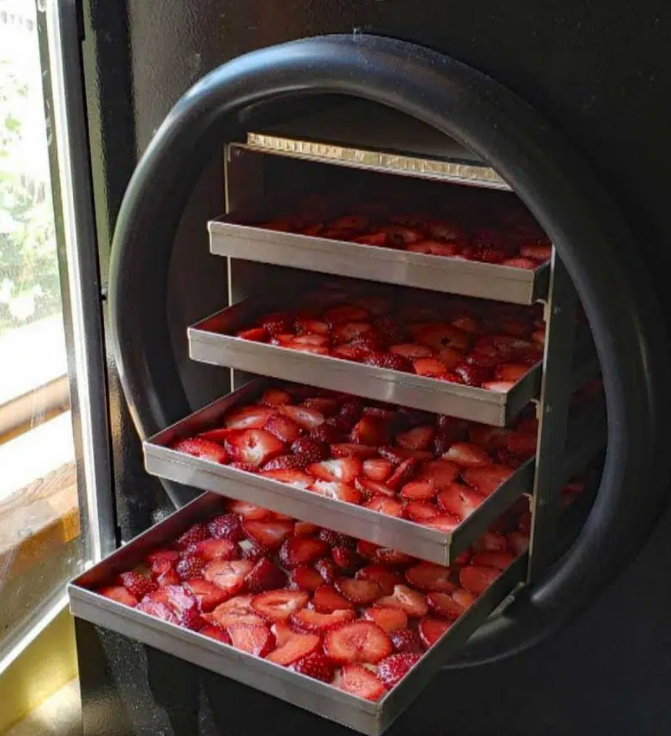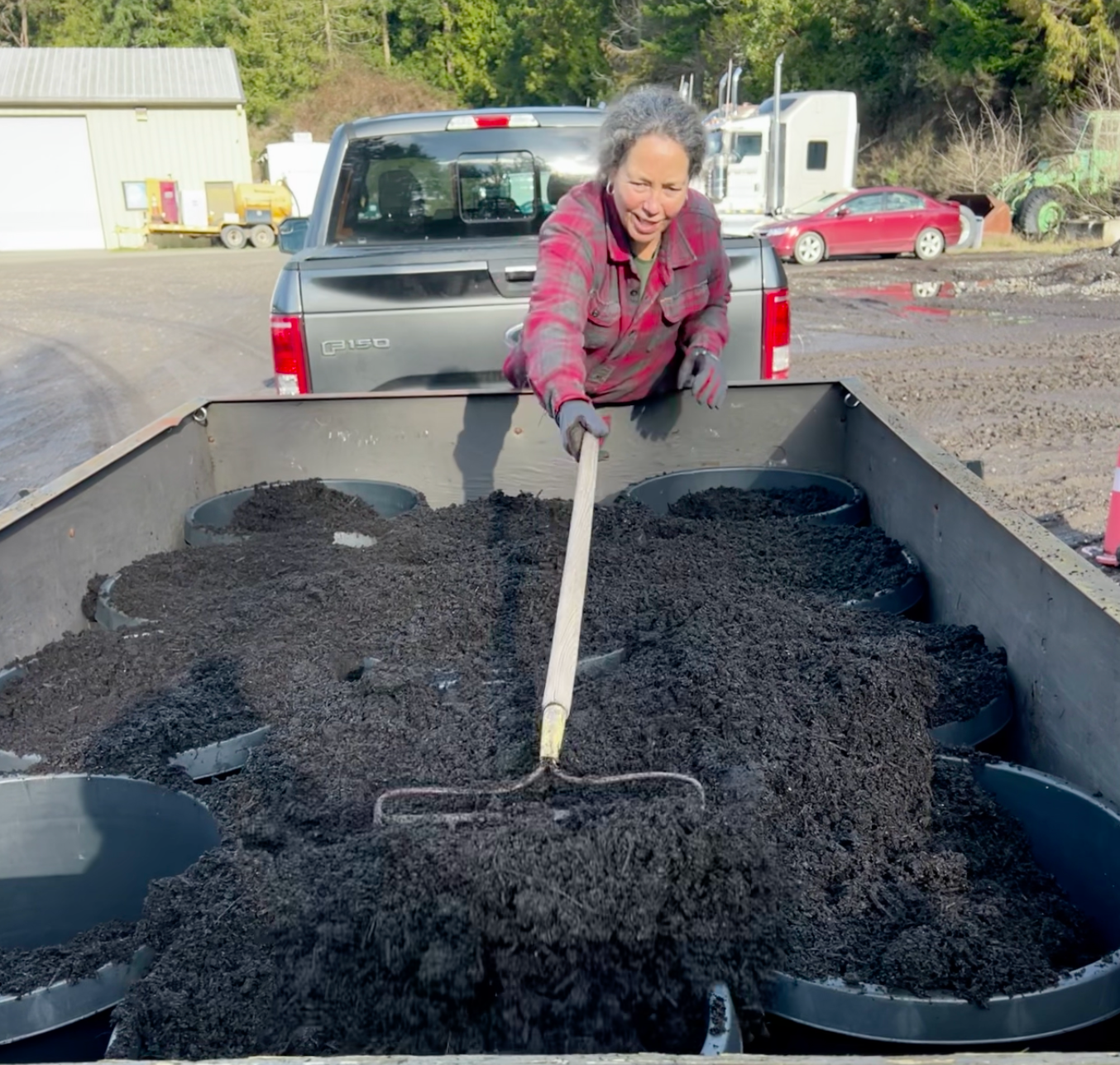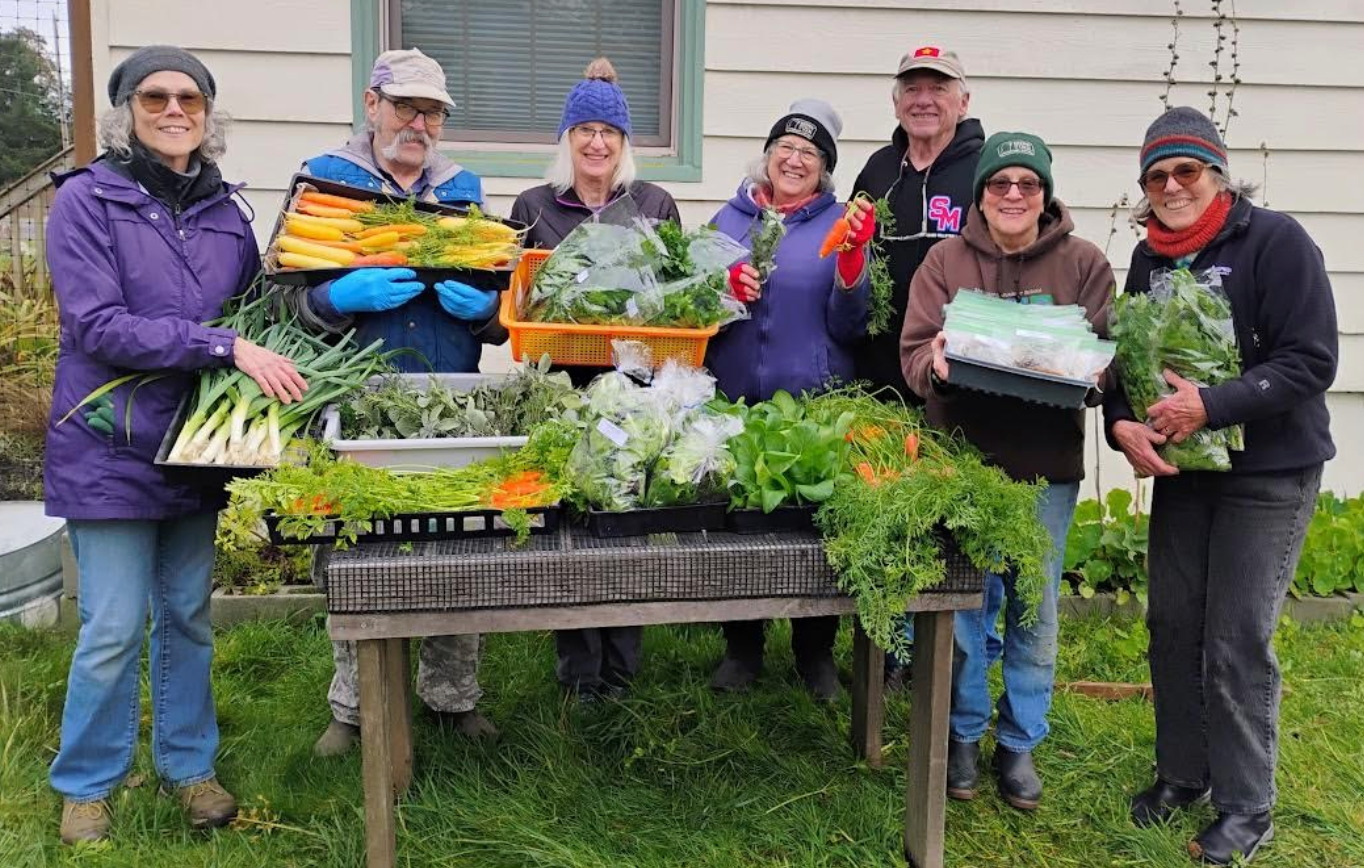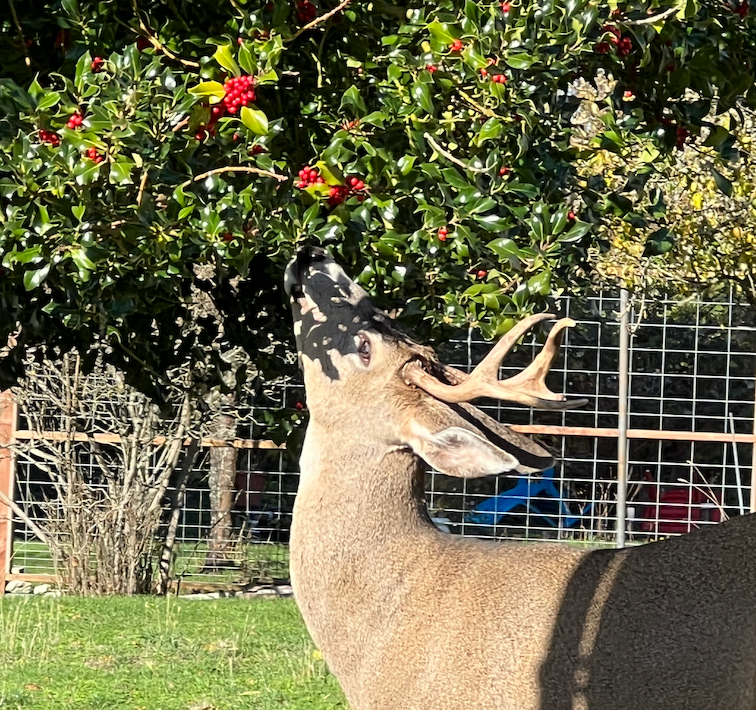Community Freeze Dryers

The brainchild of Sue Cross
Born out of a need to improve food security for East Jefferson County, a two-year pilot project was developed by Sue Cross. Start-up funds were contributed by Jefferson County Food Bank Association, Port Townsend Food Co-Op, an anonymous donor thru the Schwab Charitable Foundation, Jefferson Community Foundation, and Twin Pines Cooperative Foundation. Other community donations came pouring in and FBFG purchased the first two residential-sized freeze dryers and supplies. The Old Alcohol Plant graciously offered to house the units and freeze dry the produce.
For a more detailed overview, click here.
Surplus produce that is locally grown or donated to the food banks by grocery stores or other suppliers is freeze dried and stored for emergency food supplies. There are currently over 200 packages, or eighty pounds of freeze dried food housed at the Tri-Area Food Bank. The packets contain a great variety of fruit and vegetables, good for up to twenty-five years!
This pilot project has resulted in:
- Waste Reduction – Hundreds of pounds of fresh produce and fruit come into food banks during the three months of peak harvest and not all can be given away before it spoils.
- Creation of Food Reserve – The project allows us to create a supply of food for winter months, when very little fresh produce comes in. If fresh produce or canned produce (which has a shorter shelf life than freeze dried) is not available, the freeze dried produce can be distributed.
- A Supply of High Nutritional Value Food – Freeze drying preserves 96% of the original food value of the fresh food, a higher percentage than canning or dehydrating. Freeze drying can also produce a reconstituted product that is more attractive and closer to fresh than canning or
dehydrating, or even frozen. Additionally, freeze dried food does not require special storage units or electricity.
The FBG continues to gather data during the 2-year pilot project for use in planning and implementation of Phase 2, which includes further development of freeze drying locally. One goal of Phase 2 is to hire a part-time assistant for the increased workload at the Old Alcohol Plant kitchen, giving the project a much-needed hand, and offering training in food handling. Another is to establish and foster a small business based on freeze drying. A future plan is to acquire a mobile facility that would provide small batch processing capability (canning, dehydrating, and freeze drying) to small farmers, allowing them to create a value-added marketable product. The mobile facility would also serve as an educational platform for local schools and agricultural extension, demonstrating and teaching food preservation on location.
The cost of the pilot project will be approximately $20,000. The final cost of phase 2 is yet to be determined, but will be in the neighborhood of $75,000 or higher. Any donation earmarked for “Community Freeze Dryers” will be 100% dedicated to this specific project.
_____________________
UPDATE: 1-19-23 One of the two freeze driers now resides at the Salish Elementary School and the other at the Recovery Cafe. We will add more information as it comes in.
The final data collected on the Freeze Dryer project from the Old Alcohol plant ishere.



